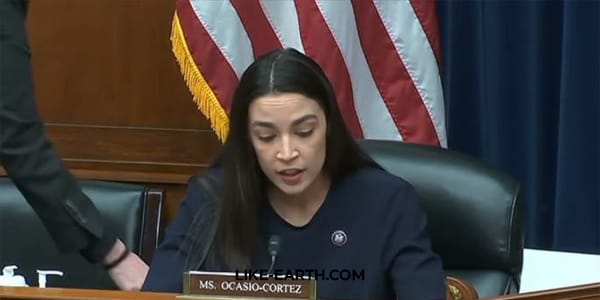Republicans Say Cuts Will Be Reinvested into Medicaid for People Who “Deserve” It

Republicans Medicaid cuts reinvested 2025 news is once again in the spotlight as GOP lawmakers claim that recent federal budget cuts will be redirected into Medicaid for people who “deserve” it. This controversial position has ignited a nationwide debate about fairness, eligibility, and the future of public healthcare in the United States.
As of May 15, 2025, Congressional Republicans continue to defend budget revisions that will reduce federal spending by billions, insisting that this money will now better serve Americans who truly need assistance. But critics argue the term “deserve” opens dangerous questions about who qualifies as worthy.
Understanding the GOP’s Medicaid Reinvestment Plan
According to GOP leaders, the aim of the new Medicaid redirection plan is to improve efficiency by cutting off what they call “abuse of the system.” The Republican proposal, which passed in the House last week, outlines significant funding cuts to several welfare programs, including portions of Medicaid, food assistance, and housing aid.
However, lawmakers claim that Medicaid is not being defunded entirely. Instead, funds will be funneled into targeted state-level programs designed to reach what they describe as the most “deserving” recipients—primarily seniors, disabled individuals, and working-class families.
The Controversy Behind the Word “Deserve”
The use of the word “deserve” has become a lightning rod. Civil rights organizations, healthcare advocates, and even some moderates within the Republican party are questioning the implications. Who decides who deserves healthcare? What criteria will be used? Will low-income Americans without formal employment be left behind?
Democrats have strongly condemned the plan, calling it discriminatory and elitist. Senate Majority Leader Karen Valdez described the policy as “a calculated effort to institutionalize inequality within America’s healthcare system.”
GOP Response to Criticism
House Speaker Mark Gibbons defended the bill during a press conference on Tuesday. “We are not cutting Medicaid. We are reallocating funds toward programs that reward effort and discourage long-term dependency,” he said. “We owe it to the taxpayers to ensure their money is spent on people who are actively trying to improve their circumstances.”
Gibbons and other supporters argue that the reforms will modernize Medicaid, reduce fraud, and promote job-seeking behavior among recipients. They also claim states will be given flexibility to define eligibility under federal guidelines.
How Will the Changes Affect Medicaid Recipients?
As proposed, the changes would not directly eliminate Medicaid access, but they would impose stricter eligibility verification, work requirements, and drug testing in certain states. Those who do not meet these benchmarks could be removed from the program or placed on a waitlist for limited care.
Healthcare organizations warn this could result in over a million people losing access to services by early 2026. Among the groups most at risk are unemployed adults without children and part-time workers earning below the poverty line.
Public Reaction: Divided but Growing in Concern
A recent Pew Research Center poll shows that 52% of Americans oppose the Republican Medicaid reinvestment plan, while 37% support it. The remaining 11% remain undecided. Supporters mostly belong to rural and suburban districts, while opposition is strongest in urban centers and among minority groups.
Social media has exploded with hashtags like #MedicaidMatters and #DeserveHealthcare, with thousands of users expressing outrage over the term “deserve” being used to filter life-saving care.
The Economic Logic Behind the Cuts
From a fiscal standpoint, Republicans argue that controlling the $700 billion Medicaid budget is essential to balancing the federal deficit. Economists supporting the plan say that smarter spending, combined with job incentives, could help reduce poverty long-term.
Still, others argue that denying access to healthcare worsens outcomes and increases emergency room visits, which in turn drives up overall healthcare costs for taxpayers.
Comparing State Reactions and Policies
Several Republican-led states like Texas and Florida have already begun drafting local versions of Medicaid eligibility reform. Meanwhile, blue states like California and New York are vowing to shield their residents through expanded state programs, even if federal support shrinks.
This discrepancy could further deepen healthcare disparities across the nation, creating what some are calling “Medicaid inequality zones.”
Healthcare Professionals Sound the Alarm
Doctors, nurses, and healthcare administrators warn that the proposed changes could severely damage public health infrastructure. “We are on the verge of turning away patients who simply can’t meet new requirements, not because they don’t want to, but because they can’t,” said Dr. Emily Foster, a Medicaid clinic director in Ohio.
Hospitals in low-income areas are bracing for funding cuts and patient overloads. Emergency rooms, often the last resort for uninsured individuals, are expected to become even more crowded.
The Political Future of the Medicaid Debate
The Medicaid reinvestment bill will face a Senate vote next month. While Republicans hold a slim majority, several swing-vote senators are reportedly undecided. Protests and rallies are expected to continue throughout May and June.
Healthcare reform remains one of the most polarizing issues in American politics, and this latest debate may have major implications for the 2026 midterm elections.
Conclusion: Is Healthcare a Privilege or a Right?
At the heart of this debate lies a fundamental question—should healthcare be a right for all or a privilege for the “deserving”? The Republicans Medicaid cuts reinvested 2025 news underscores this moral dilemma, as the nation watches closely.
Whether these reforms lead to a stronger system or deepen inequality, one thing is certain: Medicaid is no longer a quiet topic in American politics. Its future hangs in the balance—and the public voice may be the deciding factor.
For more analysis and breaking news updates, visit Like Earth.
Stay informed with real-time updates through our official WhatsApp Channel. Republicans Say Cuts Will Be Reinvested
Share This Article
Let your friends know about this exciting news!



